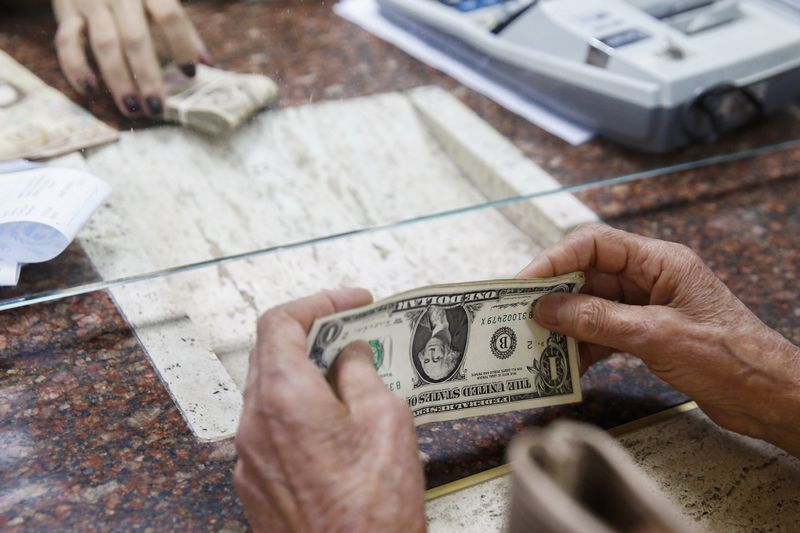By Gina Lee
Investing.com – The dollar was up on Friday morning in Asia, and was set for its best week in five months. Investors continue to bet that higher-than-expected inflation will prompt central banks to hike interest rates quicker than expected.
The U.S. Dollar Index that tracks the greenback against a basket of other currencies grew 0.07% to 95.237 by 23:41 PM ET (4:41 AM GMT), remaining just below a record 16 month high of 95.267.
The USD/JPY pair edged up 0.18% to 114.25.
The AUD/USD pair inched down 0.10% to 0.7287 and the NZD/USD pair was down 0.23% to 0.7003.
The USD/CNY pair edged up 0.10% to 6.3965 and the GBP/USD pair inched down 0.06% to 1.3363.
U.S. inflation data released on Wednesday showed that the consumer price index (CPI) grew 6.2% year-on-year and 0.9% month-on-month in October, while the core CPI rose 4.6% year-on-year and 0.6% month-on-month.
Investors are ramping up bets on whether the U.S. Federal Reserve will hike interest rates earlier than expected. Investors are now pricing the first rate hike by July 2022 and another by December of that year, according to Reuters.
“We still think market pricing has room to firm further, especially in 2023, which can further support USD,” Commonwealth Bank of Australia (OTC:CMWAY) strategist Kimberley Mundy said in a note.
Meanwhile, "interest rate futures are too aggressive in pricing in European Central Bank (ECB) rate increases for 2022 considering ECB policymakers are not budging from their ultra‑dovish guidance," giving scope for further euro weakness, the note added.
On the data front, the University of Michigan Consumer Sentiment and Michigan Consumer Expectations indexes for November are due later in the day. The data also includes the JOLTs Job Openings index for September.
New York Fed President John Williams will speak at an online conference, which could provide clues to the Fed’s reaction to high inflation.
In Europe, European Central Bank chief economist Philip Lane will also speak on a panel at a separate event. Swiss National Bank governing board member Andrea Maechler said at an event on Thursday that as market uncertainties grow due to COVID-19, the Swiss franc is still recognized as a safe haven investment.
